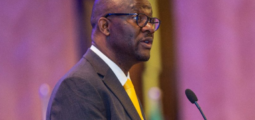The Euro Crisis Should Distract on Rio+20 Agreement
Much of the world’s attention has been focused on the Euro crisis but this should not be allowed to distract from Rio+20.
Negotiations in the run up to the UN’s sustainable development summit are normally dificult, said UN Secretary General Ban Ki-moon, who is “cautiously optimistic” that an agreement will be reached in Rio de Janeiro later this month.
“This has been a quite difficult negotiating process,” Ban said today. Member states were not able to streamline all the paragraphs in the negotiating text during an extra five-day meeting that concluded on Saturday. “But this is not unusual, multilateral negotiations normally take a long time, it often appears from the outside that no progress is being made until the very last minute of the conference.
Most of the paragraphs have been through extensive discussions and are waiting official approval from heads of state and ministers who will arrive in Rio for the climax of the talks on 20-22 June – 20 years after the original Earth Summit.
The WWF warned that it thinks the talks are facing two outcomes – an agreement so weak it is meaningless, or complete collapse.
“Currently, we are a long way from where we need to be in these negotiations,” said WWF director general Jim Leape. “Heads of state still have a unique opportunity in Rio to set the world on a path to sustainable development – but they need to step up their game dramatically.”
The most recent round of talks in New York split into 19 separate dialogues with internal disagreements on the processes to be followed, according to WWF. “Country positions are still too entrenched and too far apart to provide a meaningful draft agreement for approval by an expected 120 heads of state,” said Leape.
UN member states have identified 26 priority areas, Ban said, such as food security, sustainable energy and water. “It may take time to agree on all 26,” he said, urging countries to come out with their “must haves”. Ban highlighted the need to agree on Sustainable Development Goals, which are a follow-up to the Millennium Development Goals that expire in 2015.
“This is not a treaty negotiation, it’s a political agreement,” Ban said. “For a long time we have tried to consume our way to prosperity … we need to find a new model.”
It is in the world’s interest that Rio+20 has real impact and if the politicians cannot agree hopefully the increasing efforts of businesses across the globe to act in a sustainable manner will help push the process in the long term.
You may have an interest in also reading…
Women, Science and Robots: The Gender (R)evolution Ushers-in Precision Medicine
In Germany, a team developing an AI-based human resource tool thought they had found a way to feed their system
Liechtenstein Bankers Association (LBA): Modern Industry Association with the Ambition to Shape the Future
The Liechtenstein Bankers Association (LBA), established in 1969, is the domestic and international voice of banks operating in, and from,
NEPAD: Boosting Africa’s Most Valuable Renewable Natural Assets – Fish
Sierra Leone’s fisheries sector, valued at 735 million US dollars, has received a boost from the Partnership for African Fisheries



















































































